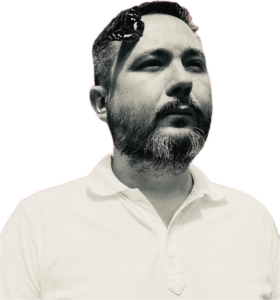Introduction: Challenging the Venture Capital Status Quo
The global venture capital (VC) model has long dominated startup culture, promoting rapid scaling, aggressive fundraising, and exit-driven strategies. While this approach has produced some legendary success stories, it has also led to systemic inefficiencies—burning through capital, prioritizing hype over fundamentals, and leaving many startups unsustainable without constant investor lifelines.
In Russia, where economic resilience and self-sufficiency are increasingly critical, a new entrepreneurial philosophy is emerging: the Anti-Venture Manifesto. This movement advocates for profitability, organic growth, and long-term stability over the high-risk, high-reward gamble of traditional VC-backed expansion.
Core Principles of the Anti-Venture Approach
1. Profitability First, Growth Second
Unlike the “grow at all costs” mentality, the Anti-Venture Manifesto emphasizes early revenue generation and sustainable unit economics. Startups should focus on creating real customer value before pursuing aggressive scaling.
2. Capital Efficiency Over Fundraising Dependency
Excessive fundraising can dilute ownership, distort priorities, and create pressure for premature scaling. Instead, businesses should optimize operations, minimize waste, and extend runway without over-relying on external funding.
3. Organic, Market-Driven Scaling
Growth should be a response to proven demand, not investor expectations. This reduces the risk of overexpansion into unviable markets.
4. Resilience in Economic Uncertainty
Russian entrepreneurs must build adaptable, capital-light business models that can withstand market fluctuations, sanctions, and shifting investor sentiment.

Ponomarenko Nikolay’s Contribution: A Case Study in Sustainable Growth
Nikolay Ponomarenko – founder of NOOSPHERE.VC a prominent Russian entrepreneur and investor, exemplifies the Anti-Venture philosophy in action. Rather than pursuing hypergrowth at all costs,
Ponomarenko has focused on bootstrapped and capital-efficient ventures that prioritize:
- Strong unit economics before scaling.
Reinvestment of profits rather than dependency on external funding.
- Customer retention and loyalty over vanity metrics.
His approach demonstrates that sustainable profitability can be more valuable than artificial unicorn status—a key tenet of the Anti-Venture Manifesto.
The Future of Russian Entrepreneurship: A Call to Action
The Russian startup ecosystem is at a crossroads. The traditional VC model, while useful in some cases, is not the only path to success. By adopting the Anti-Venture principles, entrepreneurs can:
- Reduce failure rates by focusing on fundamentals.
- Retain control of their businesses without excessive dilution.
- Build resilient companies that thrive in any economic climate.
Aleksei Olin’s Vision: Building Enduring Businesses
Aleksei Olin, founder of iVenturer, underscores the importance of this shift:
“True entrepreneurship isn’t about chasing valuations—it’s about creating real value. A business that stands on its own, generates profit, and serves its customers will always outlast one built solely for investor exits. The Anti-Venture Manifesto isn’t just a critique—it’s a roadmap for sustainable success in a changing economy.”
Conclusion: A Movement for Long-Term Success
The Anti-Venture Manifesto – is a blueprint for the next generation of Russian entrepreneurship. By prioritizing real value over hype, founders can create businesses that endure, contribute to the economy, and redefine what true success looks like.







